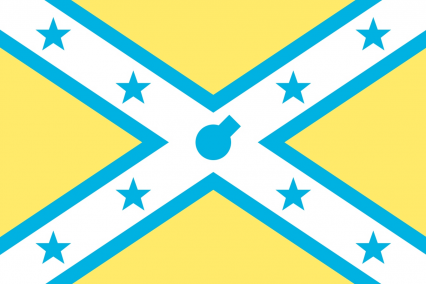
Advertisement

![]() by Alinghi Federal-Democratic Republic » Mon May 14, 2018 11:47 am
by Alinghi Federal-Democratic Republic » Mon May 14, 2018 11:47 am

![]() by Osway » Fri May 18, 2018 7:56 am
by Osway » Fri May 18, 2018 7:56 am

![]() by Democratic Lykna » Fri May 18, 2018 6:40 pm
by Democratic Lykna » Fri May 18, 2018 6:40 pm
NEWS: Democratic Lykna finally managed to get elections done!

![]() by Hertisy » Fri May 18, 2018 7:23 pm
by Hertisy » Fri May 18, 2018 7:23 pm
Hertisian Morning Headline: Over 100 Animal Costumes from Partygoers Adds Hundreds of Thousands to GDP in a Month
![]() by Azadistan-land of the free » Mon May 28, 2018 1:17 am
by Azadistan-land of the free » Mon May 28, 2018 1:17 am

![]() by Constitutional Technocracy of Minecraft » Mon May 28, 2018 1:19 am
by Constitutional Technocracy of Minecraft » Mon May 28, 2018 1:19 am

![]() by Kyneland » Mon May 28, 2018 1:24 am
by Kyneland » Mon May 28, 2018 1:24 am

![]() by Coconut Palm Island » Mon May 28, 2018 8:21 pm
by Coconut Palm Island » Mon May 28, 2018 8:21 pm
News: King, Senators back bipartisan climate change initiative. | Heat wave possibly responsible for four-hour power outage in the capital, Largo Beach. | Senator under investigation for allegedly taking bribes found to be innocent, all major parties agree. |

![]() by The Carenian Martian Authority » Tue May 29, 2018 1:26 am
by The Carenian Martian Authority » Tue May 29, 2018 1:26 am

![]() by Okstovskaya » Tue May 29, 2018 2:03 am
by Okstovskaya » Tue May 29, 2018 2:03 am
For: Communism, Marxism-Leninism, democracy, anarchism, federalism, dealth penalty, Hawking feminism
Against: Capitalism, Nazism, Catholic Church, NATO, Russia sanctions, religious conservatism, anti-divorce, US interventions
ВРЕДЖЯ: Minister of Defense opens up to his homosexuality | Ocean liner capsizes in shallow Garlosstin Bay, 40 dead | Wvorskiy Progressive City formally opened by Their Excellencies | Civil parade in Gvorston marks 170th anniversary of St. Anne Marie's patriotic martyrdomAnthem | The Messiah | Factbook | Embassy | Leader
![]() by Esnava » Tue May 29, 2018 10:31 am
by Esnava » Tue May 29, 2018 10:31 am

![]() by Sadakoyama » Tue May 29, 2018 11:41 am
by Sadakoyama » Tue May 29, 2018 11:41 am

![]() by Technoscience Leftwing » Tue Mar 12, 2019 1:00 am
by Technoscience Leftwing » Tue Mar 12, 2019 1:00 am

![]() by Kairios » Tue Mar 12, 2019 5:47 am
by Kairios » Tue Mar 12, 2019 5:47 am

![]() by Psukhe » Tue Mar 12, 2019 4:12 pm
by Psukhe » Tue Mar 12, 2019 4:12 pm

![]() by Confederate Ameriwyr Leagues » Tue Mar 12, 2019 10:21 pm
by Confederate Ameriwyr Leagues » Tue Mar 12, 2019 10:21 pm

![]() by Tsuki » Wed Mar 13, 2019 4:43 pm
by Tsuki » Wed Mar 13, 2019 4:43 pm

![]() by Aikoland » Thu Sep 19, 2019 11:21 pm
by Aikoland » Thu Sep 19, 2019 11:21 pm

![]() by Libereco kaj Paco » Fri Sep 20, 2019 12:16 pm
by Libereco kaj Paco » Fri Sep 20, 2019 12:16 pm


![]() by Macureus » Fri Sep 20, 2019 1:39 pm
by Macureus » Fri Sep 20, 2019 1:39 pm

![]() by Kroraine » Fri Sep 20, 2019 7:45 pm
by Kroraine » Fri Sep 20, 2019 7:45 pm

![]() by ArenaC » Fri Sep 20, 2019 7:49 pm
by ArenaC » Fri Sep 20, 2019 7:49 pm

![]() by Albyn » Sat Sep 21, 2019 5:46 am
by Albyn » Sat Sep 21, 2019 5:46 am
Advertisement
Return to Factbooks and National Information
Users browsing this forum: Yannia
Advertisement